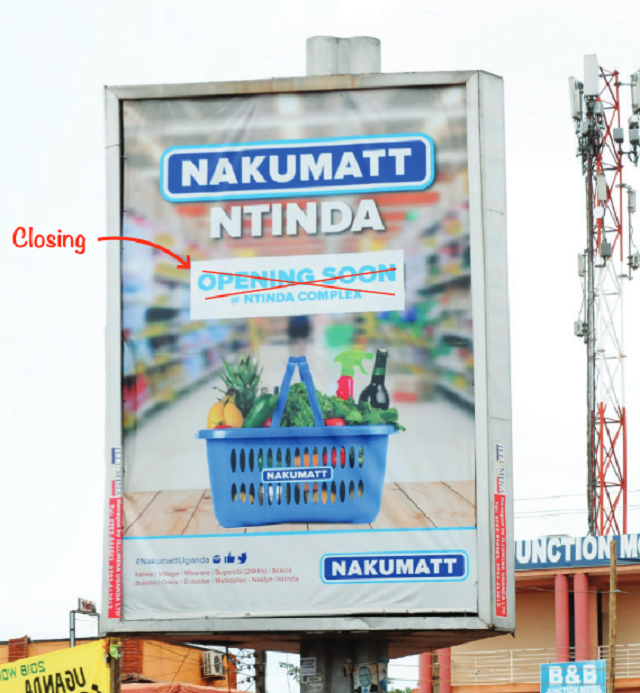
Nakumatt: Unstable US$150m debt sends jitters among retail supermarket suppliers
Business at Nakumatt supermarkets in Uganda has been slowly declining for months but recent persistent reports that all is not well at the parent company of the Kenya-based regional retail giant may have made a bad situation worse.
The Nakumatt outlet at Oasis Mall on Yusuf Lule Road in Kampala used to have customers jostling for space as they steered packed shopping trolleys to their cars in the park. These days the cashiers are found napping most of the time.
Inside the supermarket, a large section of fridges for frozen products are empty. The shelves for other basic commodities, including beverages and sugar, are half empty and the few customers in the once powerful supermarket market pick one or two items. Even basic products like Coca Cola and Jesa Farm Dairy Limited products are off.
A visit to other outlets of the supermarket chain tells a similar story.
“Many if not all suppliers stopped giving us their products as far as three months ago,” a worker at one of the branches who preferred anonymity confided, “No one is interested in supplying us with products for fear that they may not be paid.”
This is the same situations in a number of the company’s stores that The Independent visited including one at Acacia Mall in Kololo and the other in Bukoto, a Kampala suburb.
A number of staff at the company’s stores said the products they have are old-stock as suppliers stopped supplies nearly three months ago over unpaid debts.
Concern about Nakumatt’s business health rose at the time when the company reduced its operating hours at its main branch at the Oasis Mall outlet in Kampala.
The branch cut six hours off its operation from 24 hours to 18 hours without adequate communication from the Uganda County manager, Bernard Mutua.
Also to be factored into Nakumatt’s woes is the knock-on effect of the closure of business by another Kenyan retail chain; Uchumi, last year.
Uchumi supermarkets exited Uganda and Tanzania markets citing low return on investment. Outlets in the two countries contribute only 4.75% of value to the group but accounted for over 25 % of the operating costs.
Uchumi left Ugandan suppliers saddled with Shs8.8 billion ($2.5 million) in unpaid bills for the goods and services supplied to the company.
Jittery suppliers who lost money in that closure have panicked this time. Many have opted to cut their losses quickly in case Nakumatt’s woes deepen and it shuts down. The result has been short supplies, limited product variety, and empty shelves.
But Nakumatt managers insist it is not shutting down.
“The business remains resilient and continues to grow,” said Atul Shah, the Nakumatt managing director who is based in Nairobi soon after reports of an uncertain future for the company started circulating.
Shah who was giving an East Africa-wide view of Nakumatt operations added: “Like any other business operating in this market, Nakumatt Holdings has faced a number of unforeseen business challenges”.
He cited challenges the company has had to deal with including a depressed economy, higher operating costs, and extraneous factors including risk management due to prevailing security threats.
“As expected, these factors have impacted on operations on many fronts, including cash flow.”
 The Independent Uganda: You get the Truth we Pay the Price
The Independent Uganda: You get the Truth we Pay the Price



